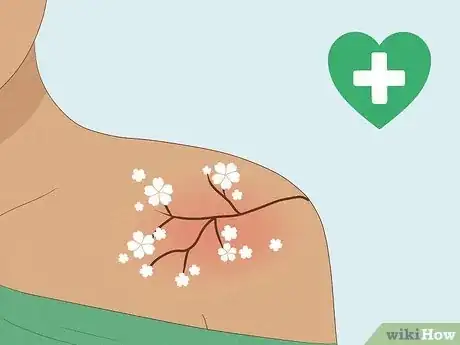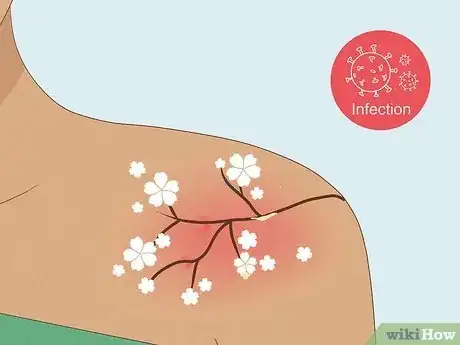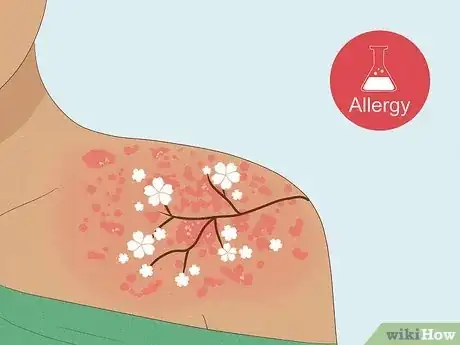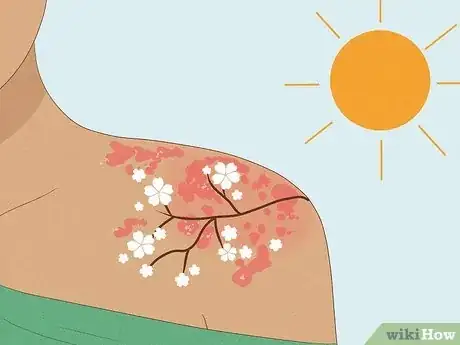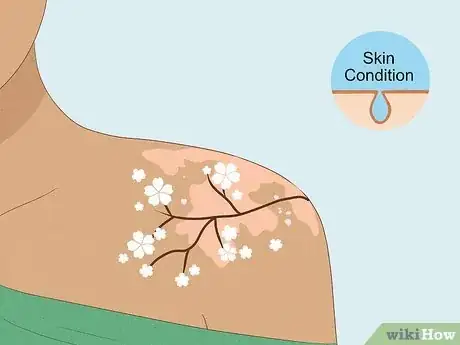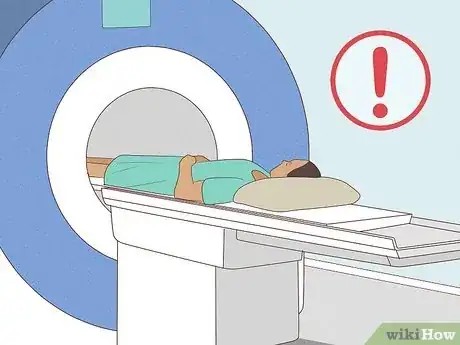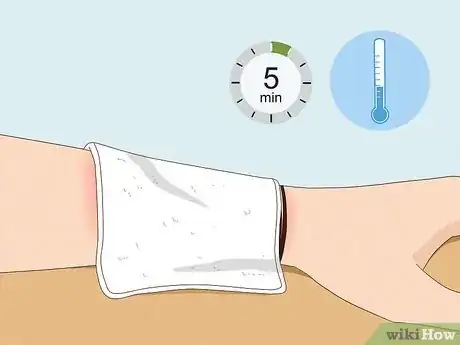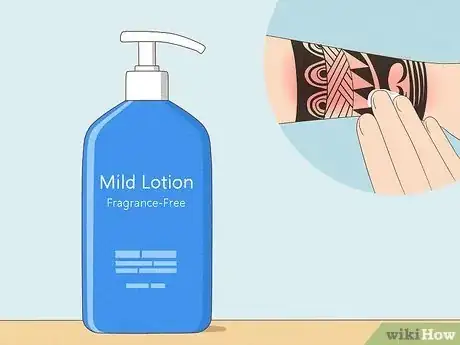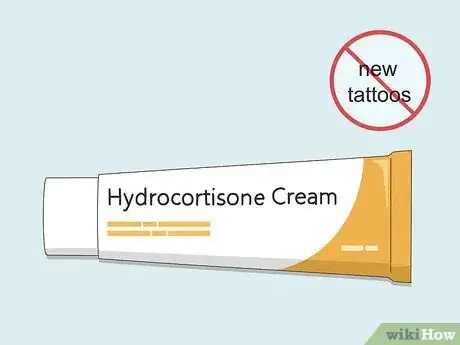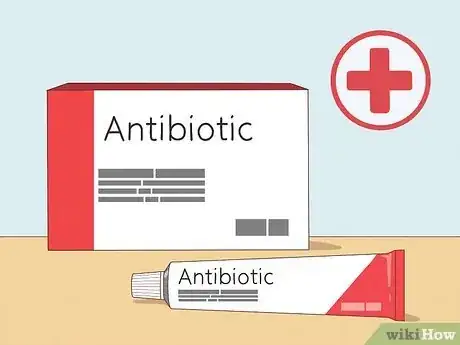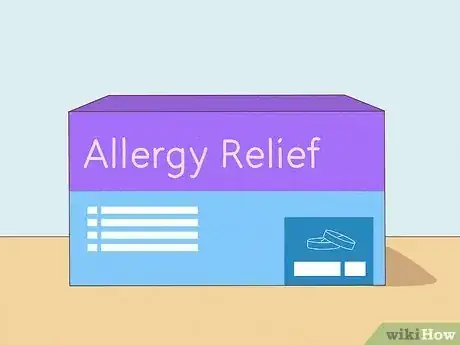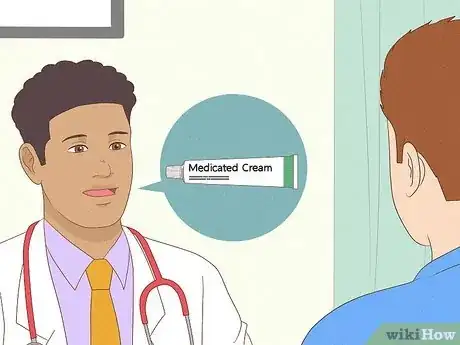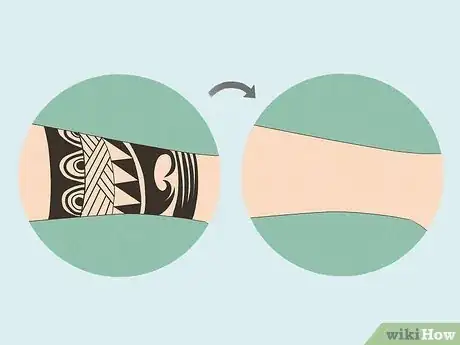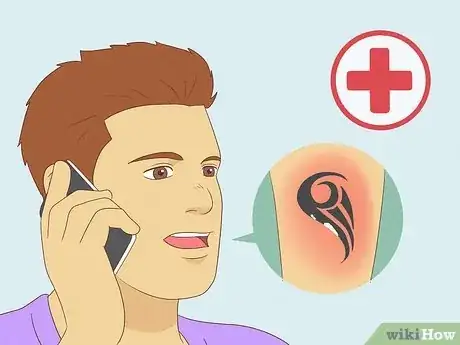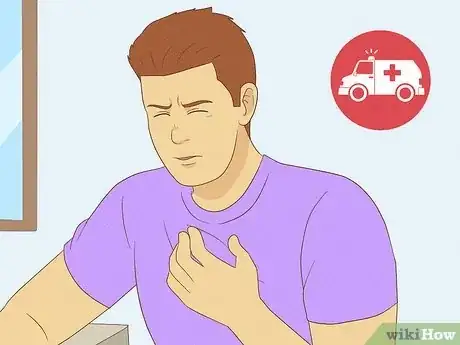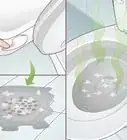This article was co-authored by Michelle Myles and by wikiHow staff writer, Hannah Madden. Michelle Myles is the Co-owner of Daredevil Tattoo, a tattoo shop located based in New York City's Lower East Side. Michelle has more than 20 years of tattooing experience. She also operates the Daredevil Tattoo Museum, co-owner Brad Fink's personal collection of antique tattoo memorabilia that he has amassed over the last 27 years of tattooing.
This article has been viewed 4,812 times.
Just got some new ink? While you probably love looking at your new work, you probably don’t love when it feels itchy or tickly just underneath the skin. Tattoos are at their itchiest when they’re fresh, but actually, they can develop an itch at any point (even when they’re years old). But don’t worry—that itchiness doesn’t have to last forever! We’ll list all the reasons why your tattoo might be bugging you and how you can get it to chill out.
Things You Should Know
- Itchiness can be the result of the normal healing process, but could also indicate something serious, like an infection or an allergy.
- For mild itchiness, use a cold compress to cool the area and reduce swelling.
- If your tattoo is caused by an infection or an allergy, talk to a doctor about your treatment options.
Steps
Causes
-
1Normal healing If you just got your tattoo and it’s starting to itch, rest assured that it’s likely just part of the normal healing process. Most tattoos feel a little itchy or tickly as they heal, especially for the first couple of days or weeks.[1] X Research source
- Tattoos are basically an open wound. The tiny cuts and scrapes in your skin will itch as they heal and scab over, which is totally normal.
- You may also feel itching as the hair in the area grows back, especially if you’re not used to shaving that part of your body.
- You can tell that it’s not just normal healing if your tattoo looks raised, inflamed, or feels painful.
-
2Infection An infected tattoo may look red, raised, or develop painful bumps. If your tattoo is infected, you may also develop a fever, chills, or see pus leaking from the tattoo. If you think your tattoo is infected, make an appointment with your doctor right away.[2] X Trustworthy Source American Academy of Dermatology Professional organization made of over 20,000 certified dermatologists Go to source
- Infections typically happen when the tattoo ink has been contaminated or mixed with something besides tattoo ink (like water).[3] X Trustworthy Source US Food and Drug Administration U.S. government agency responsible for promoting public health Go to source
Advertisement -
3Allergic reaction Tattoo ink contains chemicals, and you can be allergic to those chemicals without realizing it. Plus, allergies can develop over time: your tattoo might be fine for a decade, and then suddenly, your body becomes allergic to it.[4] X Research source Typically, an allergy to tattoo ink will show up as a red, itchy rash.
- Most people are allergic to red ink, but you can be allergic to any color of ink.
- Some people develop an allergy to tattoo ink after certain medical treatments, like antiretroviral treatment for HIV or joint surgery. Researchers aren’t quite sure why, but there seems to be a pattern there.
-
4Sun allergy Some people develop an allergy, or a sensitivity, to the sun after getting a tattoo. You might notice that every time your tattoo is exposed to sunlight, it gets itchy and looks red or raised. Sun allergy can happen within minutes of the sun hitting your tattoo, or it could happen hours later.[5] X Trustworthy Source American Academy of Dermatology Professional organization made of over 20,000 certified dermatologists Go to source
-
5Skin condition Tattoos can exacerbate certain skin conditions. In some cases, tattoos can make a skin condition appear, even if you’ve never had one before (it’s likely that you had the gene for it without any symptoms so far). The most likely skin conditions to cause issues with tattoos are:[6] X Trustworthy Source American Academy of Dermatology Professional organization made of over 20,000 certified dermatologists Go to source
- Psoriasis
- Eczema
- Vitiligo
- Lichen planus
- Keloid
- Sarcoidosis
- Scars
- Skin cancer
-
6MRI scan Believe it or not, an MRI (magnetic resonance imaging) can occasionally cause tattoos to swell and itch. However, this happens rarely, and the symptoms typically subside in just a few hours.[7] X Trustworthy Source US Food and Drug Administration U.S. government agency responsible for promoting public health Go to source
Treatment
-
1Cool compress Cooling your tattoo can help reduce inflammation and stop itching. Grab a clean towel and get it wet with cold water, then place it over your tattoo for about 5 minutes.[8] X Research source
- You can also use an ice pack wrapped in a towel.
-
2Lotion Dry skin tends to get itchy, and the same is true for the skin around your tattoo. Use a mild, fragrance-free moisturizer to hydrate your skin once your tattoo has fully healed.[9] X Research source
- Lotion is okay for new tattoos, since it’s important to keep them moisturized as they heal. Just be sure to use mild, fragrance-free moisturizer.
-
3Protection from the sun Protecting your tattoos from the sun will help avoid sun allergy, but it’s also just good practice to keep them looking good. Be sure to put on SPF 30 or above on old tattoos, and cover new tattoos with clothing while you’re outdoors.[10] X Trustworthy Source American Academy of Dermatology Professional organization made of over 20,000 certified dermatologists Go to source
- You cannot put sunscreen on a tattoo until it’s fully healed, so stick to covering up with clothing until your tattoo is no longer fresh.
-
4Hydrocortisone cream Hydrocortisone cream helps stop itching and inflammation. If you have a tattoo that’s fully healed, put some OTC anti-itch cream on it to help relieve discomfort. However, applying hydrocortisone cream on new tattoos is not recommended, since it can mess with the healing process.[11] X Research source
-
5Antibiotics If your tattoo is itching from an infection, antibiotics may be needed. Once you make an appointment with your doctor, they may prescribe you antibiotics to kill the infection and get your skin back to normal.[12] X Trustworthy Source American Academy of Dermatology Professional organization made of over 20,000 certified dermatologists Go to source
-
6Allergy medication If your itching is due to an allergic reaction, take some OTC allergy medication to help alleviate your symptoms. If you experience a severe reaction, like shortness of breath or a racing heartbeat, seek emergency medical care.[13] X Trustworthy Source American Academy of Dermatology Professional organization made of over 20,000 certified dermatologists Go to source
-
7Medicine for skin conditions Treating your underlying skin conditions will help alleviate itchiness and get your skin to calm down. Head to the doctor and talk about your symptoms, then let them look at your skin. They’ll be able to tell you if you have a skin condition and how exactly you can treat it.[14] X Trustworthy Source American Academy of Dermatology Professional organization made of over 20,000 certified dermatologists Go to source
- Many skin conditions can be treated with topical medication.
-
8Tattoo removal In extreme cases, your tattoo may need to be removed. This is especially true if you’ve developed an allergy to the ink in your skin. Talk to a dermatologist about tattoo removal to see if it’s right for you.[15] X Trustworthy Source PubMed Central Journal archive from the U.S. National Institutes of Health Go to source
- Depending on the size and color of your tattoo, you’ll likely need multiple rounds of tattoo removal to get rid of it completely.
When to See a Doctor
-
1Make an appointment with your doctor if you think your tattoo is infected. Infections can get worse quickly, and they can make you very sick. If you believe your tattoo is infected, make an appointment right away to get treatment.[16] X Trustworthy Source US Food and Drug Administration U.S. government agency responsible for promoting public health Go to source
-
2Seek emergency care if you’re having a severe allergic reaction. If you are having trouble breathing, have a racing heart rate, have tightness in the chest, or are feeling dizzy, you may be having a severe allergic reaction. Call emergency services right away.[17] X Trustworthy Source American Academy of Dermatology Professional organization made of over 20,000 certified dermatologists Go to source
Other wikiHows
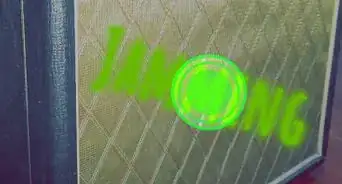
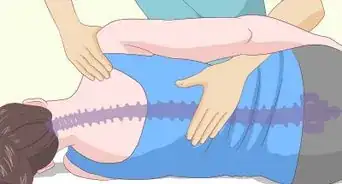 How to Relieve & Prevent Headaches & Migraines Fast
How to Relieve & Prevent Headaches & Migraines Fast
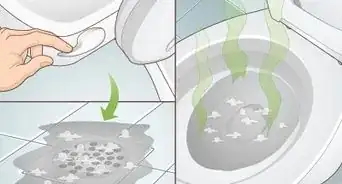 How to Unclog a Toilet: With a Plunger and without a Plunger
How to Unclog a Toilet: With a Plunger and without a Plunger
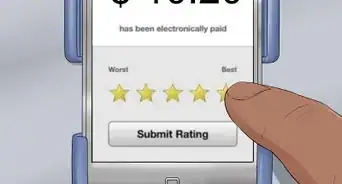
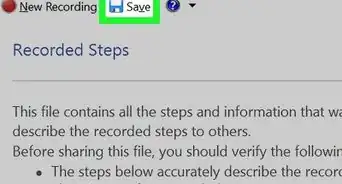 How to Take a Screenshot on a Windows PC: 8 Simple Tricks
How to Take a Screenshot on a Windows PC: 8 Simple Tricks

 How to Take Care of Potted Orchids
How to Take Care of Potted Orchids

References
- ↑ https://authoritytattoo.com/stop-tattoo-itching/
- ↑ https://www.aad.org/public/everyday-care/skin-care-basics/tattoos/tattoo-skin-reactions
- ↑ https://www.fda.gov/consumers/consumer-updates/think-you-ink-are-tattoos-safe
- ↑ https://www.pennmedicine.org/updates/blogs/health-and-wellness/2018/july/tattoo-health-risks
- ↑ https://www.aad.org/public/everyday-care/skin-care-basics/tattoos/tattoo-skin-reactions
- ↑ https://www.aad.org/public/everyday-care/skin-care-basics/tattoos/tattoo-skin-reactions
- ↑ https://www.fda.gov/consumers/consumer-updates/think-you-ink-are-tattoos-safe
- ↑ https://authoritytattoo.com/stop-tattoo-itching/
- ↑ https://authoritytattoo.com/eczema-cream-on-tattoo/
- ↑ https://www.aad.org/public/everyday-care/skin-care-basics/tattoos/tattoo-skin-reactions
- ↑ https://authoritytattoo.com/eczema-cream-on-tattoo/
- ↑ https://www.aad.org/public/everyday-care/skin-care-basics/tattoos/tattoo-skin-reactions
- ↑ https://www.aad.org/public/everyday-care/skin-care-basics/tattoos/tattoo-skin-reactions
- ↑ https://www.aad.org/public/everyday-care/skin-care-basics/tattoos/tattoo-skin-reactions
- ↑ https://www.ncbi.nlm.nih.gov/pmc/articles/PMC4799043/
- ↑ https://www.fda.gov/consumers/consumer-updates/think-you-ink-are-tattoos-safe
- ↑ https://www.aad.org/public/everyday-care/skin-care-basics/tattoos/tattoo-skin-reactions
- ↑ https://authoritytattoo.com/eczema-cream-on-tattoo/
About This Article

